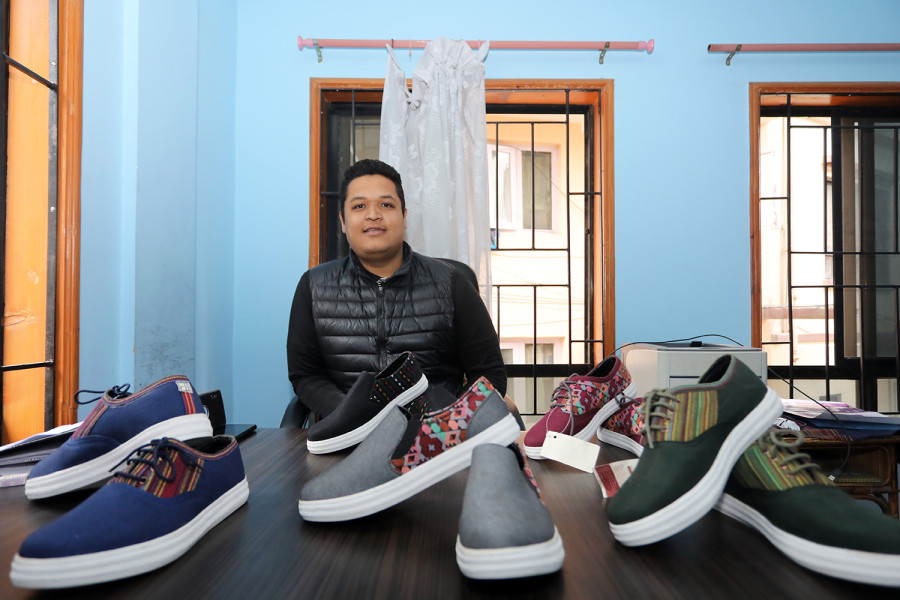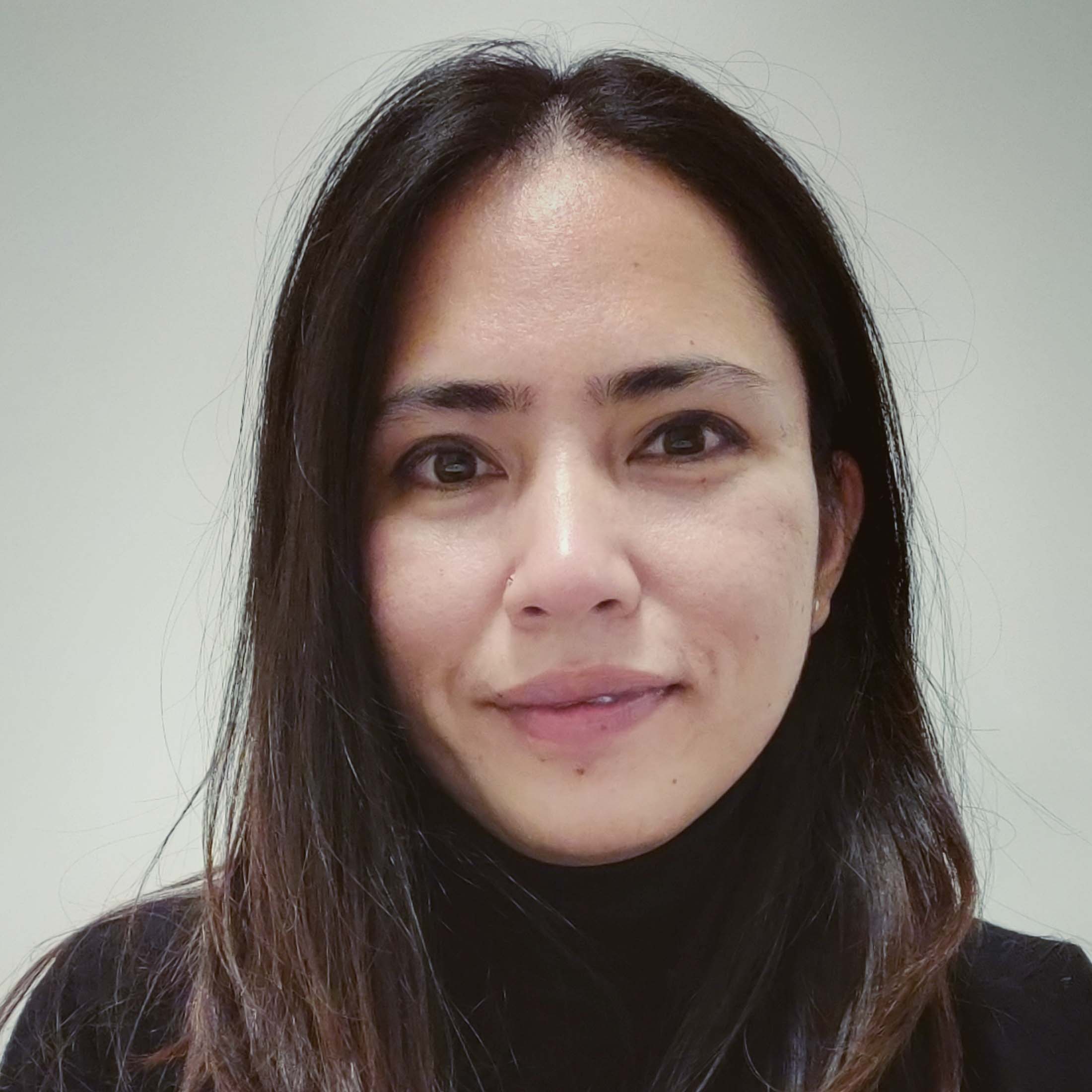Interviews
Dochaa seeks to bridge art and culture
At just 19 years of age, Watsal Rajbhandari started his business venture—Dexter Paintball Entertainment—in 2011. Although the business was successful, various external issues led to Rajbhandari concluding that he was a little too young to properly run a business.
Alisha Sijapati
At just 19 years of age, Watsal Rajbhandari started his business venture—Dexter Paintball Entertainment—in 2011. Although the business was successful, various external issues led to Rajbhandari concluding that he was a little too young to properly run a business. So he closed his business, and in December 2014, joined an NGO—Ujyalo Foundation—as an operation and finance coordinator. It was at Ujyalo that he met his future business partners—Amuda Mishra and Dikesh Prajapati—with whom he went on to start Dochaa, a footwear company. As the three shared a passion for art and fashion, they decided to start a company that would not only produce fashionable footwear but also provide something cultural. Dochaa, named after a unique type of footwear worn in the Himalayan region, started only recently, in 2017, but has already carved a niche for itself in the Nepali market with its authentic handmade shoes. In this interview with the Post’s Alisha Sijapati, Rajbhandari talks about blending culture with style and shares some of his future plans. Excerpts:
How did Dochaa come about?
During the earthquakes in 2015, when I was travelling with my future partners to Sindhuli, we realised that there is a huge gap in arts and cultural knowledge among people here. Arts and shoes are things that were never tapped into in Nepal and we wanted to stand out in the market by combining these things. In the beginning, when we were starting out, our company was not called Dochaa; it was called Grafeeti. But to sustain in the market, we decided to go with Dochaa—authentic traditional shoes made and worn in the Himalayan region. Having already gained some professional experience, working with Amuda and Dikesh for a promising venture like Dochaa was icing on the cake. Also, there was a time when Dikesh and I were in a severe accident, but despite our injuries, we decided to not reschedule our meeting. That was the point when we both realised the passion we had for this start-up.
What initial challenges did you face when starting Dochaa?
We went to Agra in India, hub of the footwear industry, for training. As we had no experience, that was a great beginning for us. We wanted to collaborate with many footwear companies here to gain some experience but unfortunately, maybe due to the rise in competition, our small team was never encouraged. But for Dochaa, shoe entrepreneur Ahmed Dulla, who already has his own company, has always helped us make our products better. First, he knew that we were targeting a different market and second, he was willing to support a company like ours, which is hell bent on promoting Nepali culture and fabrics. The other challenging part, which we continue to face since we started, is retaining employees. In Nepal, unfortunately, people who work for a footwear manufacturing company are still looked down upon. As founders, we want that perception to change, as all of us want to give something productive back to the community and empower them.
How is Dochaa different from other footwear brands?
As I said earlier, Dochaa is here to promote cultural significance and we want to infuse cultural fabrics into our shoes. Dochaa is a mix of culture and luxury. We aren’t here to compete with any other brand because all of them have their own market and unique selling point, like we do. If big Nepali brands have a mass market, we are niche. Apart from our soles, all of the raw material is from Nepal itself, especially the textiles . Currently, our fabrics come from Thaiba, Lubhu, Sattungal and Bhaktapur. As our shoes are all handmade, it takes us time to deliver them to our customers—about a week. As we are a start-up, there is a lot to learn and we aren’t willing to rush.
How has Dochaa helped bring social impact?
Our company currently works in collaboration with another footwear company, Leather Wings. We have over six artisans working with us, who are paid according to the pieces they create. Apart from our full-time artisans, we also have an open space in our factory where we work with women from Thimi Women’s Group. Most of these women stay at home and help us with sewing. In terms of design, we have Dikesh and an official patternmaker who come up with innovative designs. The artisans take the final call if they are willing to explore a new arena. We believe that everybody should be treated equally and everyone’s views should be taken into account.
How has Dochaa’s unique aesthetics helped in creating a brand for itself in the market?
We are a niche market. We first had our products at a Saturday market in Octave, Durbar Marg and since then, we’ve had people call us to inquire about our shoes. We haven’t been aggressively involved in marketing our products but thankfully, word of mouth has done wonders for our business. Our shoes are available at the Local Project and Decraft store in Boudha. We have limited stock available and most of our orders are online. I don’t think we are a brand yet, but I am sure we have created some kind of buzz in the market.
What are your future plans?
We are just two years old and we want to take things slow. Although, we do have a lot planned for the company. Our shoes are already available in Australia right now via a website. We want to branch out to other locations within the country, such as Dharan, Chitwan and Nepalganj. Maybe, if everything goes well, we’ll have a small store in Kathmandu showcasing many of our designs.




 9.89°C Kathmandu
9.89°C Kathmandu












